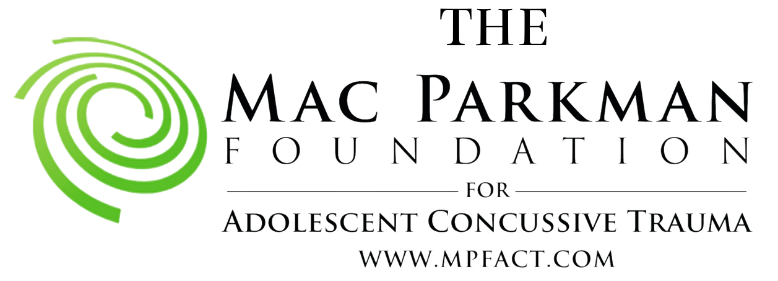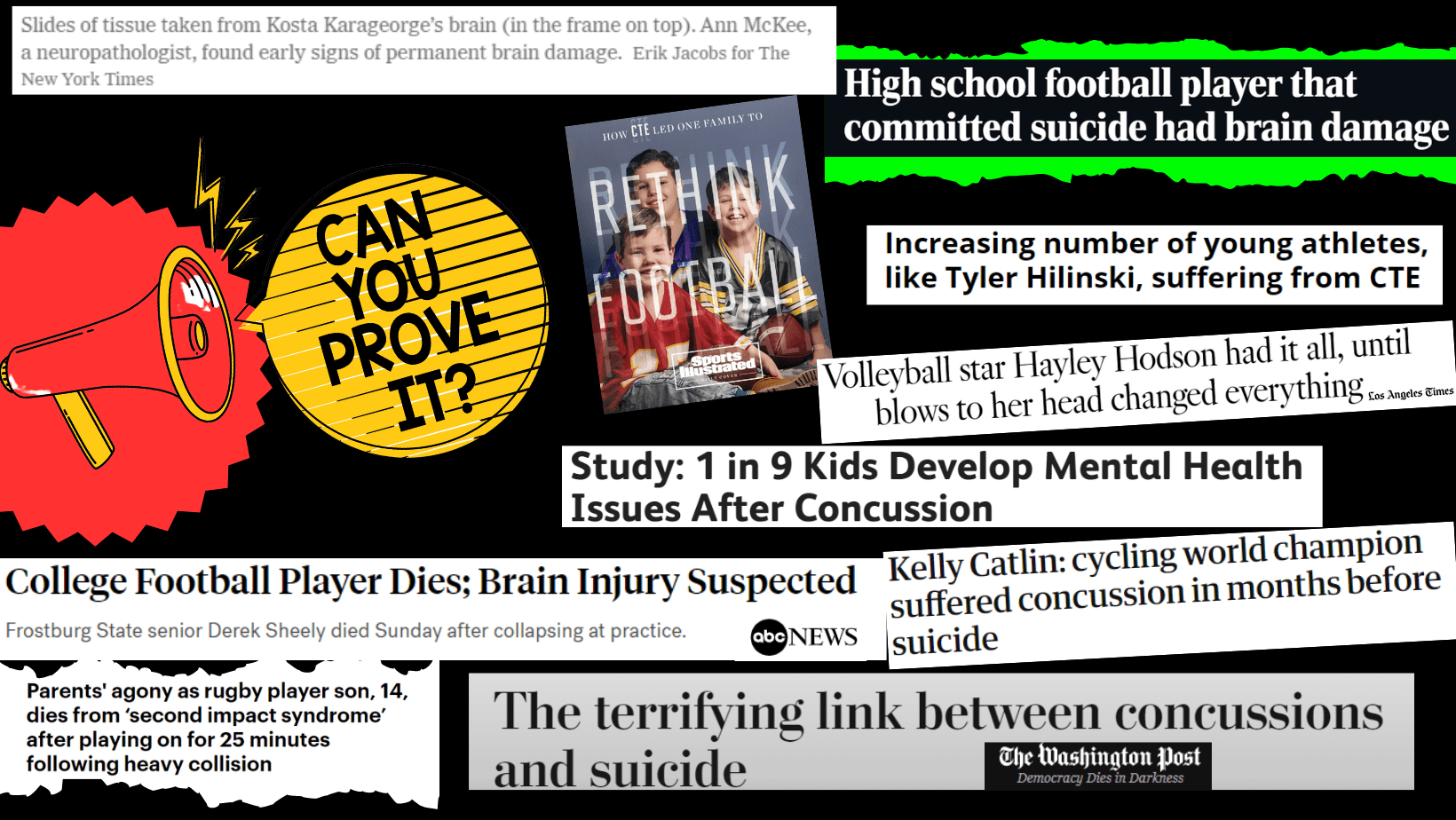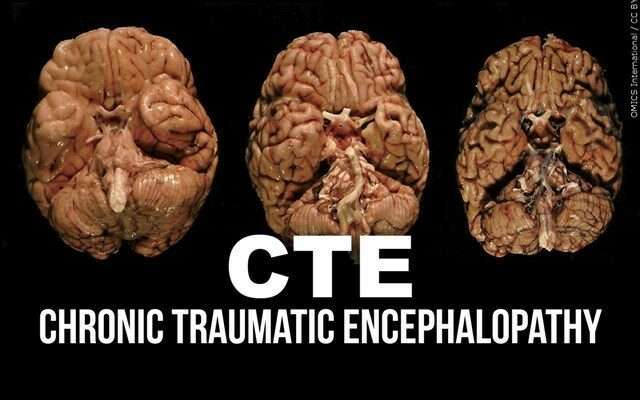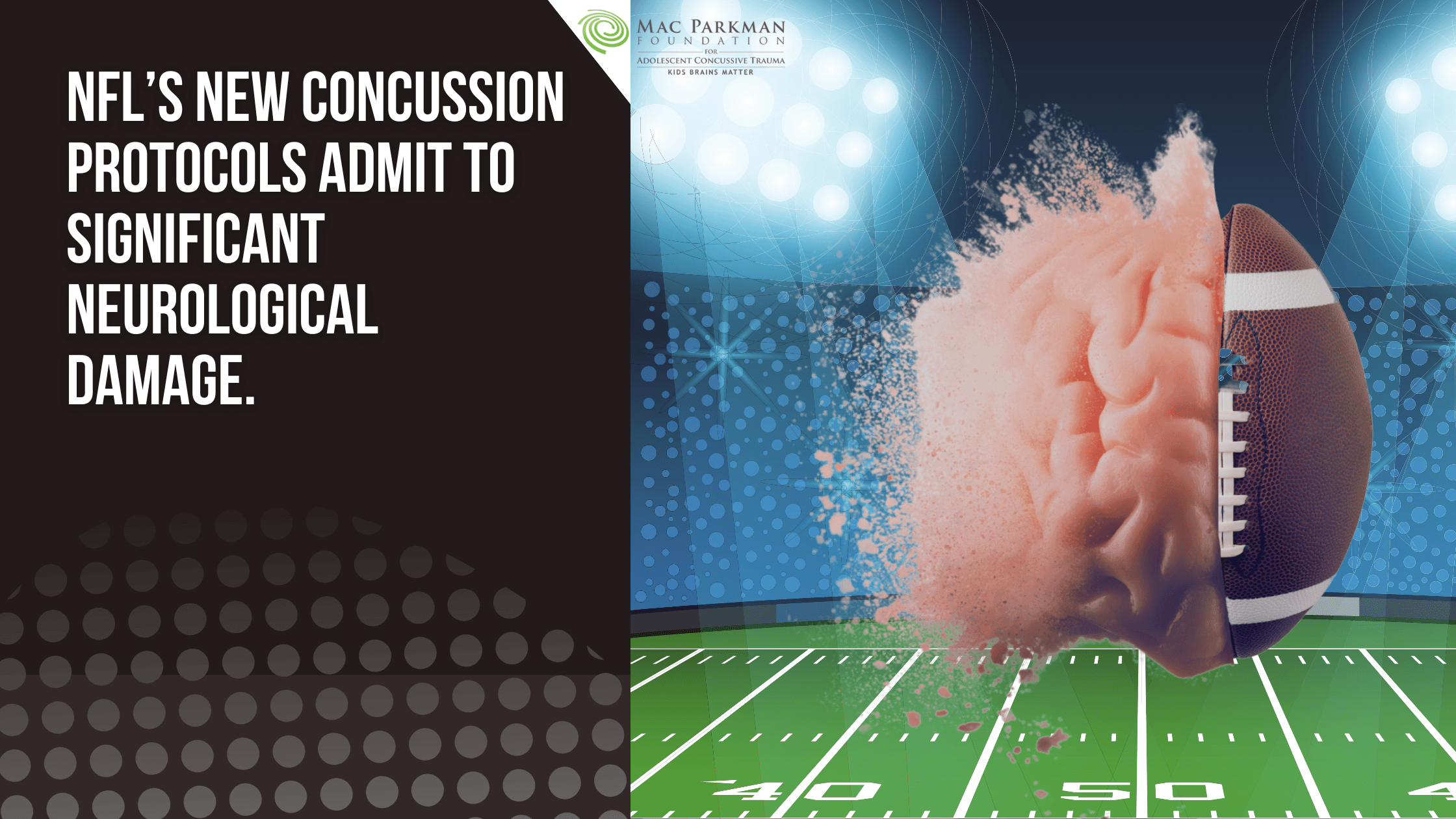KID’S BRAINS MATTER
The Mac Parkman Foundation for Adolescent Concussive Trauma was created to honor our son and brother, Mac Parkman who took his life after struggling with mental illness because of extensive exposure to concussive and subconcussive trauma from sports activities.
The Foundation serves to provide a centralized community of trust for parents, coaches, athletic trainers, and athletes to learn about the risks of subconcussive and concussive related trauma for our youth, particularly focusing on the risks of multiple concussions, subconcussive trauma, and long-term management and identification of issues including physical pain/trauma, depression, and other related mental health issues.
Our Mission
To serve as a source of information, resources, and communications to the community of parents, coaches/Athletic trainers, and medical staff that require knowledge about sports-related subconcussive trauma and to raise awareness of the long-term implications of concussive and subconcussive trauma to our children to include physical pain and emotional/mental health issues such as depression, personality disorders, and other mental health issues. We will support this mission through collaboration with other sports, medical, educational, and military organizations, advertising, fundraising, and communications.

From the Blog
Millions of parents permit their kids to participate in sports encouraging their kids to be active and healthy. However, over the years, these sports that were historically played during one season a year have evolved to elongated periods through multiple private and public programs available to child athletes issues. In our blog we will address some of these issues.
What can you do?
The lack of understanding of subconcussive trauma is the largest gap in knowledge that many parents, coaches, trainers, and medical staff have when it comes to managing our children and sports. By starting our children in sports at younger ages, extending their sports seasons, and allowing them to participate in contact activities before the age of 14, we have exposed millions of kids to billions of subconcussive events harming them along the way. Parents must understand the risks of subconcussive trauma and manage them like any other risk to their child to prevent them from being harmed and allowing them to have full and productive lives.

















